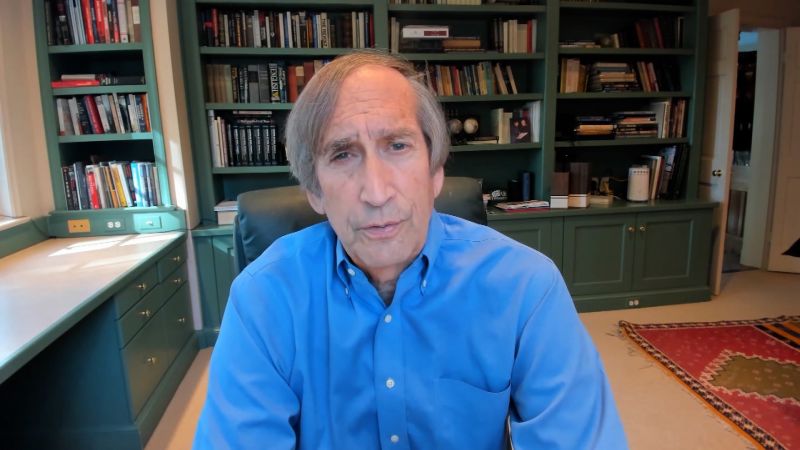In their details, the judicial changes that Israel’s Parliament passed yesterday sound like something that liberals in the U.S. and democracy advocates around the world might support.
Israel reduced the power of its Supreme Court judges, who until now could use the vague standard of “reasonableness” to overturn policies enacted by government ministers. Going forward, democratically elected leaders will have more power, and unelected judges will have less. Conceptually, the policy is not so different from changes that many Democrats would like to implement in this country.
But the reaction from political progressives, moderates and even some conservatives — in Israel and elsewhere — has instead been one of extreme alarm. And that alarm stems from worries among many observers that Israel is using the mechanics of democracy to transform itself into an undemocratic country.
The government led by Prime Minister Benjamin Netanyahu (who’s known as Bibi) is the most right-wing in the country’s 75-year history, many observers say. Freed from judicial oversight, it will have the ability to push Israel further toward becoming a religiously conservative country. In the process, the conflict between Israelis and Palestinians could worsen.
Among the fears of Netanyahu’s critics:
-
Israel may build many more settlements in the West Bank, including on privately owned Palestinian land, making long-term peace impossible.
-
Ultra-Orthodox Jews engaged in religious study may have an easier time avoiding military service, creating a two-tier society even among Israelis.
-
Netanyahu may be able to appoint corrupt officials to top posts. The clash with the Supreme Court stems partly from its decision blocking Netanyahu’s appointment of Aryeh Deri — an ally who had been convicted of accepting bribes — to be a minister.
-
Netanyahu, facing his own corruption trial, may replace the attorney general now that the Supreme Court has been defanged. Netanyahu has denied wrongdoing and said he doesn’t plan to replace the attorney general.
-
Thousands of Israeli military reservists may follow through on their threats to abstain from training and service because of the overhaul, undermining national security.
Bibi’s turnabout
As our colleague Isabel Kershner, who’s based in Jerusalem, told us: “The basic divide is between the more liberal, largely more secular Israelis who want a pluralistic country with a tolerant and open society and the religiously conservative and right-wing forces who make up Bibi’s current government.”
The Supreme Court has been an especially important body because Israel lacks a formal constitution. In other countries, a constitution can limit the powers of an elected government, including attempts to rig the political system to allow leaders to remain in power. In Israel, the court played that restraining role.
One paradox of the judicial overhaul is that it both strengthens Netanyahu’s government and is a sign of his own political weakness. He long opposed such an overhaul, while some far-right and religious parties supported it. But he now needs those parties to remain in power — and he may need to remain in power to stay out of prison.
“He looks like a weak prime minister who is being led by the hard-liners in his party and his coalition,” Isabel said. A Netanyahu biographer told David Remnick of The New Yorker that the mass protests and military disobedience suggest that Netanyahu has become Israel’s weakest prime minister.
Of course, the Israeli political center and left may be weaker yet, a reason Netanyahu remains in power.
More from Israel
Chaotic fun: At a monthly party in New York, guests bring a Tinder match they’ve never met. What could go wrong?
“The younger person’s version of Goop”: Sporty & Rich started as an Instagram account. It’s about to open a New York store.
Ick factor: It tastes like any other beer, but it’s brewed with wastewater.
Lives Lived: Reeves Callaway made high-performance automobiles for deep-pocketed customers that challenged Porsche and Ferrari, reaching speeds of 250 miles per hour. Callaway died at 75.
WOMEN’S WORLD CUP
Linda Caicedo, the 18-year-old who scored the winning goal in Colombia’s 2-0 victory over South Korea, is in her third World Cup in a year after playing in the under-20 and under-17 tournaments.
The Philippines won its first World Cup game ever with its first World Cup goal, defeating the co-host New Zealand, 1-0.
Three points for a win and one for a tie: Here’s how teams can advance to the round of 16.
OTHER SPORTS NEWS
Settling in: Aaron Rodgers, the Jets quarterback, has yet to throw a pass but is soaking up New York culture.
Another gambling penalty: A Denver Broncos defensive tackle, Eyioma Uwazurike, was suspended indefinitely for betting on N.F.L. games, joining a succession of players penalized this off-season for violating the league’s gambling policy.
ARTS AND IDEAS
A family of shark hunters: “The Shark Is Broken,” a comedy based on the troubled production of the 1975 film “Jaws,” comes to Broadway next month. The one-act play centers on the squabbling of the film’s stars, notably Robert Shaw, the acclaimed British actor who played the shark hunter Quint. If the Quint onstage appears to be a dead ringer for the original, it’s for good reason: Shaw’s son Ian plays him.







More News
After the Met Gala, the Parties Lasted All Night
Security Guard Injured in Shooting Outside Drake’s Home in Toronto
From a Dead Dog to a Made-Up Meeting: Takeaways From Kristi Noem’s Book